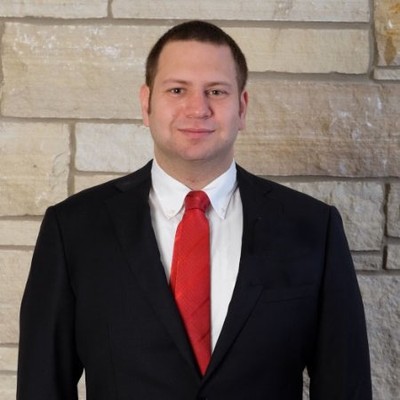
I’m honored to accept this nomination to serve my colleagues on ATA’s Board of Directors. As Administrator of the Slavic Languages Division since 2023, and as Assistant Administrator and volunteer in other capacities before then, I’ve always appreciated the spirit of mutual service that makes ATA a welcoming home and source of active support to language professionals. My top priority as a volunteer, including if elected as Director, will always be maintaining a dutiful and responsive relationship with my fellow ATA members, especially those who take the initiative to improve the life of our profession.
I began translating while I was a graduate student and English teacher living abroad in Moscow, and I earned ATA’s Russian into English certification shortly after returning to the U.S. in 2017. During the pandemic, I started taking online Ukrainian classes, and I’ve been working out of that language for a few years now. In my time as a division volunteer, I’m especially proud of organizing networking events, communicating with members, and nurturing initiatives brought forward by them.
ATA stands at the heart of the major issues of our day: contract labor, artificial intelligence (AI), immigration, access to legal services, trade and tourism, diplomacy, and advocacy. We can’t shy away from these issues. ATA’s greatest strategic resource has always been the authority and expertise of its members in matters of translation and interpreting. All too often, ATA seems to be at the margins of broader public discussions. Guided by our professional standards and ethics, ATA has developed a core of positions on matters of public policy. Now it is time to ensure they are heard.
ATA’s authority is especially relevant with regard to the ongoing technological revolution in our industry. Even before the recent breakthroughs in large language models, ATA counted among its members some of the world’s most experienced experts in machine-assisted translation and its commercial applications. Now that the topic has broken into the public consciousness, we must not be caught on the back foot. We know exactly what skills are needed to use these technologies effectively and ethically when it comes to translation and interpreting, so we should be leading the discussion. Initiatives by ATA’s Language Technology Division, in particular the groundbreaking 2023 Virtual Conference, have been a great start, but it’s time for us to recognize that AI in some form will become a key tool of our craft, and as such a part of ATA’s identity. If elected as ATA Director, my biggest objectives will be for ATA to set the standard for responsible use of new T&I technologies, become a primary training resource for them, and develop certification programs for machine-assisted translation.
Please reach out to me directly if you’d like to have a broader discussion about my goals. Our organization is strongest when all our voices are heard. I hope to earn your vote. Thank you for this opportunity to be of service.